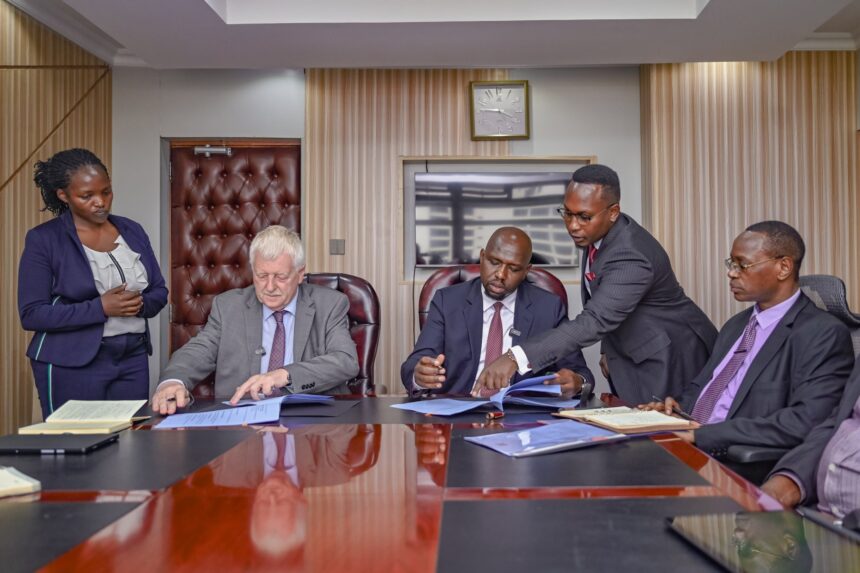Transport Cabinet Secretary Kipchumba Murkomen has recently sealed a groundbreaking deal with the Government of the Netherlands, marking a pivotal moment in Kenya’s horticultural and agro-logistics industries. The agreement, finalized on Tuesday, March 26, is poised to revolutionize the sea route for perishable goods, with far-reaching implications for the economy and employment sector.
The Kenya-Netherlands deal
Representing President William Ruto, CS Murkomen unveiled plans that are expected to generate over 3 million jobs within the sector, a move hailed as a significant boon for Kenyan citizens. The focus of the deal is on establishing a cool logistics corridor, a sophisticated infrastructure that will streamline the transportation of perishable goods, particularly horticultural products.
“A well-functioning sea freight logistics system for perishables could double or even triple Kenya’s horticultural exports, and that could create up to 3 million jobs in the horticultural and agro-logistics industries,” Murkomen explained, underlining the transformative potential of the initiative.
The memorandum of understanding (MoU) signed by CS Murkomen and Dutch Ambassador Maarten Brouwer will pave the way for private investment in cool logistics infrastructure. This strategic move aligns with Kenya’s broader vision of enhancing its trade capabilities and fostering economic growth through innovative partnerships.
CS Murkomen signs deal
Key components of the agreement include the development of port facilities, transportation networks, and regulatory frameworks tailored to meet the specific needs of stakeholders in the private sector. The cool-logistics corridor aims to set new benchmarks in the transportation of fresh produce, thereby bolstering bilateral trade and fortifying Kenya’s agricultural landscape.
“Kenya enjoys deep and cordial relations with the Netherlands that straddle the trade and transport sectors, as well as development cooperation,” Murkomen emphasized, highlighting the longstanding ties between the two nations.
The logistics corridor, stretching from Mombasa to Malaba, is slated to become the largest of its kind in Africa upon completion, signalling Kenya’s commitment to innovation and sustainable growth. Murkomen also commended the project for its environmental benefits, citing the significantly lower emissions associated with sea transport compared to air freight.
In a bid to complement these efforts, Kenya has previously acquired 300 wagons from China for use on the Standard Gauge Railway (SGR), with a portion allocated specifically for transporting perishable goods. This strategic investment underscores Kenya’s commitment to enhancing rail services and overall efficiency in the logistics sector.
With ongoing developments such as the Dongo Kundu Special Economic Zone around the Port of Mombasa, the stage is set for increased private sector investment and heightened competitiveness in the global market. CS Murkomen’s vision and leadership in forging strategic partnerships are poised to leave a lasting impact on Kenya’s economic landscape, heralding a new era of growth and prosperity for the nation.














